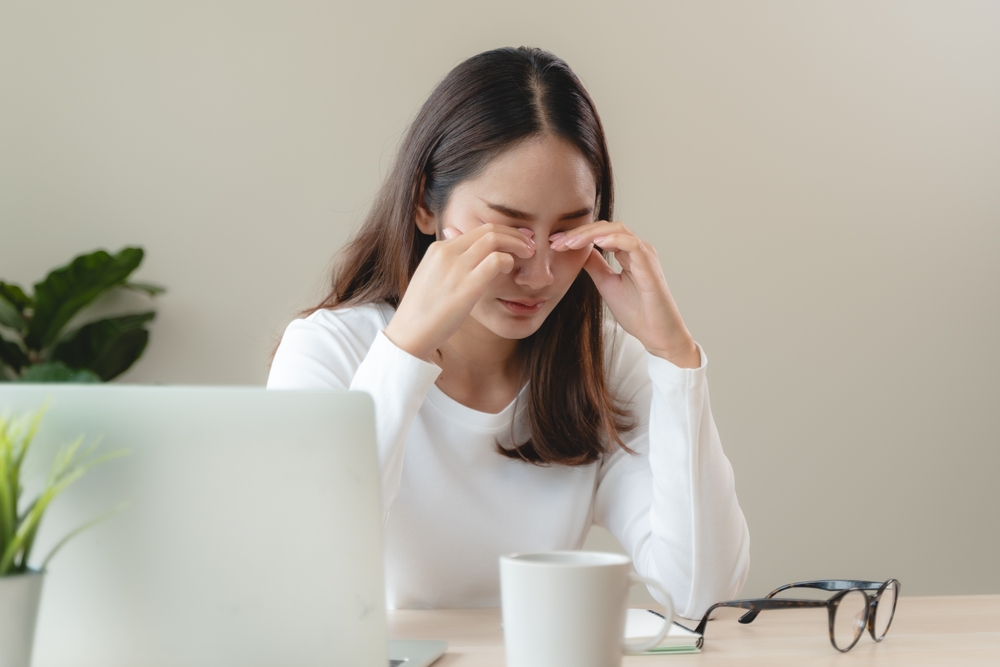
You constantly rub your eyes, but the gritty, burning feeling doesn’t go away. Blurry vision comes and goes. Some days, wearing contact lenses feels like sliding sandpaper into your eyes.
Dry eye syndrome affects millions. Yet, few talk about how frustrating it is to live with red, irritated eyes day after day. What if slight changes could make a big difference?
Dry eyes are not just annoying. They can disrupt work, hobbies, and even simple moments like reading a book. You might feel stuck. Over-the-counter drops help for an hour, but the problem always comes back.
Experts agree that treating dry eyes requires more than temporary fixes.
Understand Why Your Eyes Feel Dry
Tears are not just water. They are a mix of oils, mucus, and antibodies that keep eyes smooth, clear, and protected. When this balance breaks down, eyes get dry.
Aging, screen time, medications, or medical conditions like rosacea can disrupt tear production. Windy climates or indoor heating worsen symptoms. Fortunately, most triggers are manageable with the right approach.
Hydrate Smartly
Drinking enough water supports tear production, but hydration does not stop there. Eating foods like salmon, walnuts, and flaxseeds can reduce inflammation and help oil glands work better. Omega-3 fatty acids in these foods are beneficial for your health. People who add omega-3s to their diet experience fewer dry eye symptoms.
For external hydration, avoid eye drops with preservatives. These chemicals irritate the eyes over time. Preservative-free artificial tears are gentler for daily use. Apply them before activities that strain your eyes, like scrolling on your phone or driving.
Protect Your Eyes From Irritants
Indoor air often feels drier than people realize. Fans and heaters can strip moisture from the air. A humidifier can help keep the air at a comfortable level. Aiming for 40 to 60% humidity is best to keep your eyes feeling good.
If you spend too much time on a screen, think about how it affects your eyes. Position your screen a bit lower than eye level to reduce strain.
It helps keep your eyes from opening too wide, which can reduce tear evaporation. Outdoors, wear wraparound sunglasses to protect your eyes from wind and harmful UV rays.
Quick Adjustments for Immediate Relief
Taking care of your eyes matters more than you might think. You may feel tired from staring at screens all day. A simple tip is to take breaks every 20 minutes. When you look at something 20 feet away for 20 seconds, it can help.
Cleaning your eyelids at night can make a difference, too. Using a warm washcloth helps unclog the oil glands. This can reduce irritation and give you some comfort.
Switching to glasses is smart on days with high pollen or in smoky areas. Your eyes can feel less stressed with this adjustment. Taking these steps can support your well-being.
When to Seek Professional Help
If symptoms persist for weeks, consult an eye specialist. Chronic dry eyes can signal conditions like blepharitis or meibomian gland dysfunction.
Treatments like prescription anti-inflammatory drops, punctal plugs, or light therapy can restore comfort.
Dry eyes do not have to control your life. Start with one change, like adding omega-3s to meals or using a humidifier, and track improvements. Pairing lifestyle tweaks with professional care often yields the best results.
For more on dry eye syndrome, visit Wellesley Hills Eye Care at our Wellesley, Massachusetts, office. Call (781)501-9120 to schedule an appointment today.
https://www.mayoclinic.org/diseases-conditions/dry-eyes/diagnosis-treatment/drc-20371869








